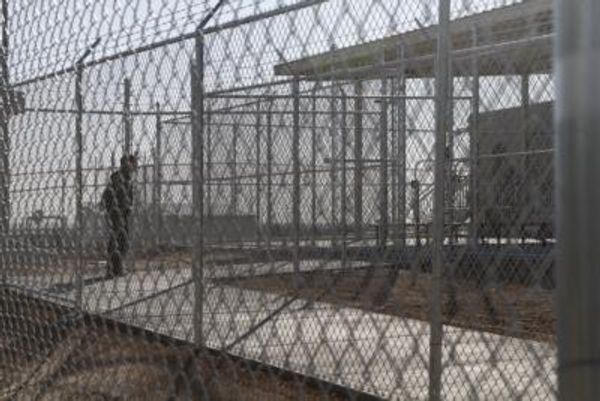
The Greens and secular organisations have revived calls to remove the financial reporting exemptions given to thousands of religious charities, suggesting that scrapping them would enhance public trust in light of new research into their activities and wealth.
No arguments put forward by Catholic and Anglican churches five years ago to justify the creation of “basic religious charities” (BRCs) hold water, said Dr Phil Saj, a visiting scholar at the University of Adelaide’s business school.
BRCs are the only category of charity exempt from reporting any financial information under the Australian Charities and Not-for-profits Commission Act (ACNC). The legislation was introduced “with hardly almost zero public debate” during the “heady days” of the Rudd and Gillard minority government in 2012, Saj told Crikey, with a review five years later.
Saj wrote new research revealing that most BRCs have financial reporting requirements in place through denominational frameworks, and the requirements imposed through those frameworks are “far more onerous” than those required under the act.
In 2020, 8319 charities were BRCs, controlling more than $6 billion in assets, according to the research figures.
Greens justice spokesman Senator David Shoebridge said the BRC classification was being used to avoid tax and also accountability.
“Why should a small charity helping the homeless or children be required to provide financial accountability for money received and spent, but big institutions like Hillsong and the Catholic Church can use BRC to avoid this?” he told Crikey. He wants the loophole closed off to ensure financial reporting from all charity institutions.
Saj, who holds a PhD and has a special interest in accountability and governance of not-for-profit organisations, studied all the arguments by the two main churches given BRCs exemption submitted as part of the review: “Not one of them stood up.”
He recently presented the research to the Rationalist Society of Australia (RSA), prompted by its interest in what RSA president Meredith Doig called “the free pass religions get when it comes to charitable giving”.
The data further highlighted that the “lack of transparency” around BRCs and the main organised religions in Australia was “endemic”, as underpinned by the the Royal Commission into Institutional Responses to Child Sexual Abuse.
“They’re very secretive,” Saj told Crikey. “They’ve just got away with it … going back 200 years to when Australia was colonised and, you know, most people living in Australia went to church. Now it’s the opposite. Now we are a secular society, except the churches maintain those privileged positions.”
Another academic — a former executive officer of Australian Christian Churches, who has insight into BRCs but did not wish to be named — described the situation as “an extraordinary mix of banking corporation and charity and religious law all bundled up in one but tucked up in a world of secrecy”.
“Religious charitable development funds that are BRCs operate within a suite of statutory governance, reporting and disclosure exceptions, exemptions and exclusions within charity, banking, credit and corporation law,” they told Crikey.
“Some of these funds are substantial (hundreds of millions under management) but are highly susceptible to fraud and fee-gouging in some states.”
Most (81%) BRCs listed in the research are small parishes and churches; 19% are involved in other activities, including religious charity development funds (RCDFs), operating mainly as credit unions, plus property trusts, trading entities, welfare services, and governing, administration and coordinating bodies.
“To me, one of the most outstanding findings was that the overwhelming majority of BRCs operate within a denominational framework and they have financial reporting requirements imposed on them through those frameworks that are far more onerous than those required under the ACNC Act,” Saj said in the presentation.
“For small charities under the ACNC Act, they need to only report 12 line items of financial information, that is small charities that are not BRCs, whereas small BRC reporting within their denominational framework were required to report 20, 30, 40 lines of financial information.”
A main case put forward by the Anglicans and Catholics was that most BRCs received their financial support from members, not from the public, and therefore there was no external accountability and no right for anyone to know what they’re doing. But Saj said BRCs received indirect benefits from the community via concessional treatment of taxes, rates and levies. In 2020, 7.2% of BRCs reported fundraising in their annual information statement; meanwhile, many parishes and churches receive donations through their website.
“Something has to change but I’m hoping that this research will provide a useful argument for [Assistant Minister for Competition, Charities and Treasury Andrew Leigh] to make some changes,” Saj said.
RSA called for the BRCs reporting exemption to be removed, saying the “lack of transparency is undermining public trust and confidence in the system”.
“Given the widely reported concerns about alleged financial, corruption and abusive practices within some religious institutions, we think there is an overwhelming public desire for greater transparency when it comes to BRCs,” Doig said.
RSA reiterated its call for an inquiry, which it said at the minimum should consider whether exemptions from financial reporting to the ACNC for BRCs remained appropriate.
“We don’t even know how much money is being laundered through these institutions under the BRC exemption,” Shoebridge said. “When I asked the commissioner and the tax office for an estimate they could not even provide this.”
A media adviser for Leigh said that he was not in a position to comment.
An ACNC spokesperson said any change to law or policy affecting charities was a matter for the government.







